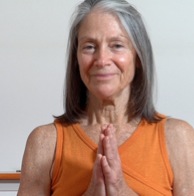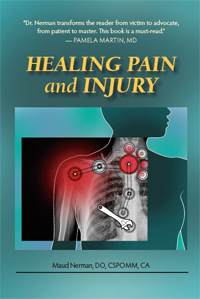
"Dr. Nerman transforms the reader from victim to advocate, from patient to master. This book is a must-read."
--Dr. Pamela Martin
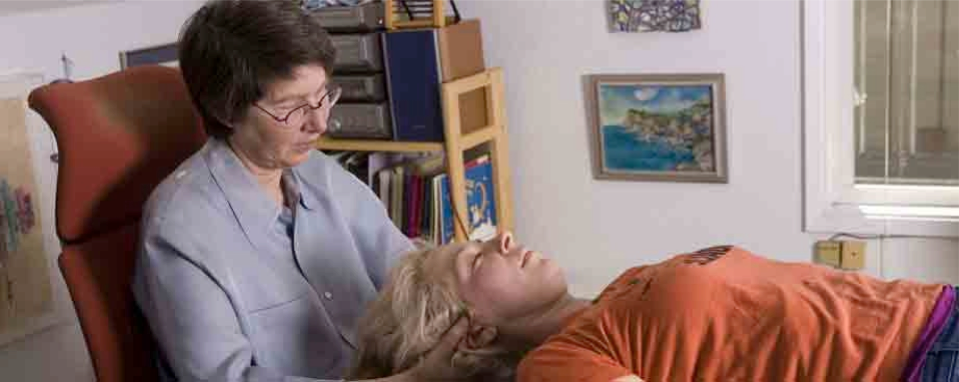
The Companion DVD to Healing Pain and Injury was designed by Patricia exclusively for this book. Patricia draws on her vast knowledge of Tai Chi, Chi Gong, Ecoscue, meditation, and other healing practices to deepen and broaden your experience. Using sound, movement and the breath, Patricia's DVD is like a personal conversation with a wonderful, supportive teacher who will help guide you back to health after trauma.
Luxuriate in Patricia's insightful and engaging manner, her unassuming yet vast wealth of knowledge, and her deep understanding and respect for the healing power of the human body and spirit.
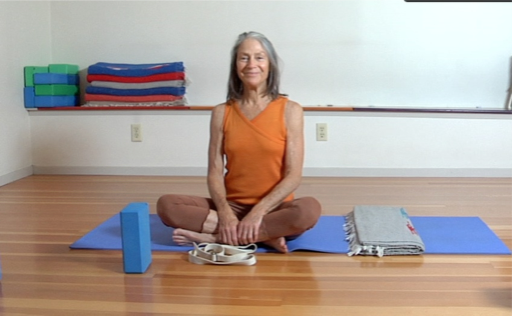
From CHAPTER 7
A Program for Healing Injury Shock
.....
Yoga has been working with breathing exercises for thousands of years. One part of this work is simply to become more conscious of our breathing. Awareness, if it leads to fuller, more relaxed breathing, is helpful because these breathing patterns change our blood chemistry. They send messages to the brain that “you’re starving me of air”, and then panic can set in. Usually when that sort of message goes to the brain, the brain sends another message back: take a deep breath or yawn, would you please. And the yawn or the deep breath can change the breathing pattern. But we override these things in our tense life. So specific exercises to change breathing patterns, when used regularly, are very helpful.
We’re going to be doing some breath work that is unique to the way I teach. I have tailored these practices to help us balance our nervous system after injury or trauma.
.....
After a trauma of some sort, or any kind of accident that shocks the nervous system, our breathing can get clenched up and not come back to normal. The nervous system can get clenched up too. What we’re working with here is restoring the normal breath, the ability of the diaphragm to move in its free normal way without us having to think about it, because that’s when it does its work the best.
........
NADI SODHANA (ALTERNATE NOSTRIL) BREATHING
This simple practice is a powerful way to balance the sympathetic and the parasympathetic nervous systems. You can do it sitting at your desk or lying in bed. There is no need to physically close off each nostril. It works very well just through focus.
••Focus your awareness inside your left nostril for three to four breaths. After several cycles of inhaling and exhaling on the left, at the end of an in-breath, pause, shift your focus to your right nostril for several breaths.
Now begin shifting your focus at the brief pause at the end of each inhalation. Shift your focus gently back and forth, each time at the end of an in-breath. Repeat for at least 6, and up to 12 breaths.
You will find that as you do this practice, your mind suddenly calms and the entire body starts to relax.
.....................
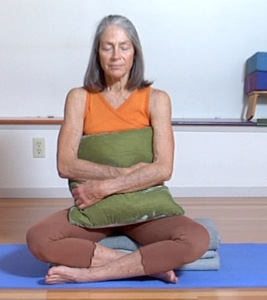
HUGGING A PILLOW
Sometimes the simplest things can help so much. Take a nice couch or bed pillow and sit in a chair, or on the couch, and hug it in and put your arms around it and breathe. Close your eyes and shut out the world for a few minutes. It’s very, very calming.
..................
LEGS ON A CHAIR
This is one of my favorites. You can use a chair, a bed, a bench, anything where the whole leg from the knee to the heel is resting. You may need to place a small blanket or towel on the chair so that your legs rest comfortably in a horizontal position.
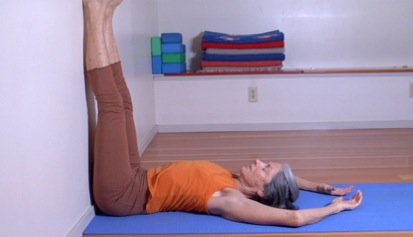
Try to have a straight line from knees to hips. Your feet and knees shouldn’t be too high, arms out from your sides.
You’ll notice as you breathe out that your belly drops back towards the floor and then fills as you breathe in. After a few breaths, at the end of the exhalation, tighten all the muscles of the abdomen, and pause for a second or two, and then release everything. Notice the way the breath comes back in. It can be quite delightfully surprising! Do 8 to 10 of these.
********
I can be reached at drmaud@hotmail.com.
Namaste